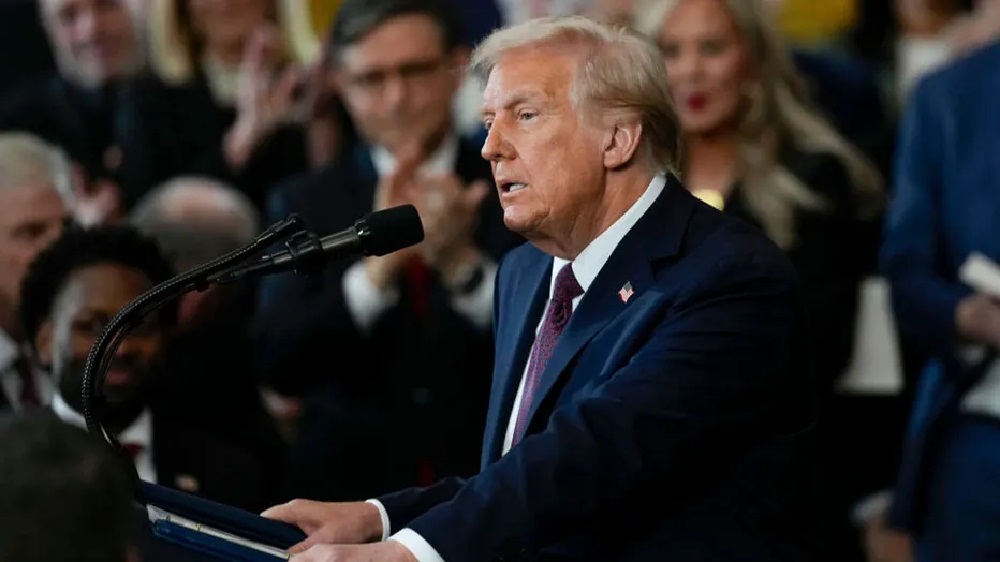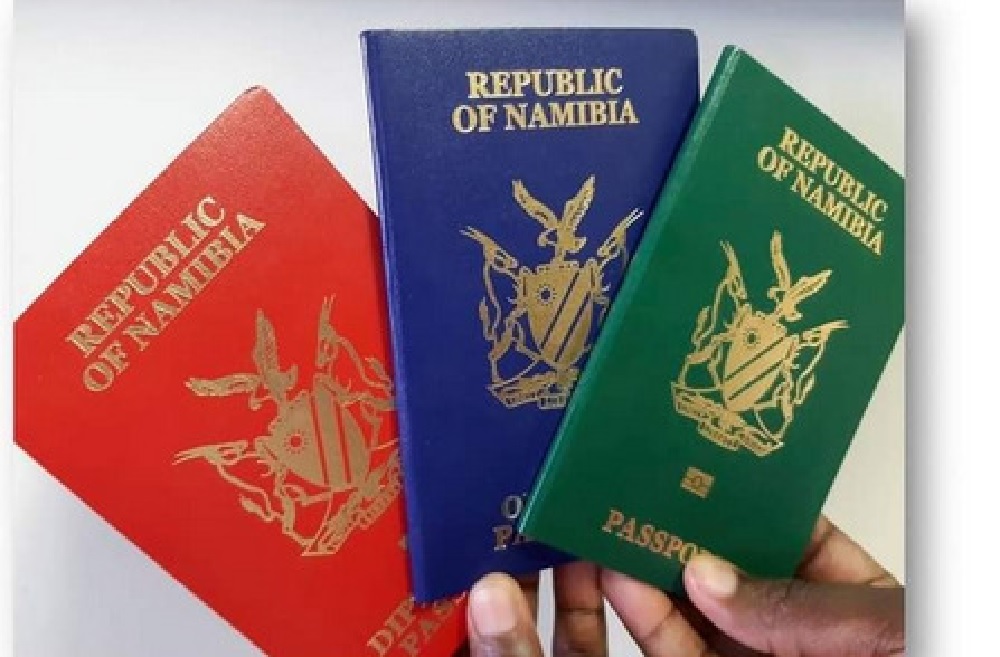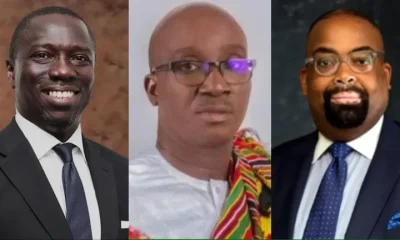Foreign
Trump reveals billions in fraudulent US foreign aid to Africa, Asia, Europe

President Donald Trump has suggested that large-scale fraud was perpetrated in multiple donations made by the previous United States government to countries worldwide.
Trump expressed vexation about how hundreds of billions of dollars in taxpayers’ money were spent on questionable programs and contracts across Africa, Asia, and Europe.
The beneficiary nations identified include Cambodia, Czechia, India, Kosovo, Liberia, Mali, Moldova, Mozambique, Nepal, Serbia, South Africa, and Uganda, among others.
The U.S. leader addressed a news conference on Tuesday at Mar-a-Lago after signing three presidential memoranda, in addition to dozens of executive orders already in effect.
The new orders relate to “radical transparency about wasteful spending,” “ensuring accountability for all agencies,” and “expanding access to in vitro fertilization (IVF)” to improve the availability and affordability of treatments.
Trump decried the “waste” uncovered by the Department of Government Efficiency (DOGE), led by Elon Musk, saying, “They are finding levels of fraud and waste and abuse I think nobody ever thought possible.”
“Incredible things are happening in our country,” the president stressed. “We’ve made more progress in three weeks than they made in four years, especially with respect to the reputation of our country. People are respecting us again.”
Asked to clarify Musk’s role in his administration after the White House, in a court filing, stated that the senior advisor has no authority to make decisions, Trump called the Tesla CEO “a patriot” for his efforts.
The president, while reading from a paper, said the information DOGE submitted to him revealed that millions of people between the ages of 100 and 249—even some as old as 360—were receiving Social Security payments.
Providing specific figures on expenditures outside America, Trump said:
“$520 million for a consultant on the environment. It’s called environmental, social, and governance investments in Africa. Somebody got $520 million for environmental studies.
“$25 million to promote biodiversity conservation and licit livelihoods by developing socially responsible behavior in Colombia. Wow, that’s nice—$25 million for something that nobody ever heard of.
“$40 million to improve the social and economic inclusion of sedentary migrants; $42 million for Johns Hopkins to research and drive social and behavioral change in Uganda. What about us?
“$70 million for a center at Purdue to research university-sourced, evidence-based solutions to develop mental challenges. These are massive numbers for things that nobody ever heard about.
“$10 million for voluntary medical male circumcisions in Mozambique… $10 million for circumcision in another country; $9.7 million for UC Berkeley to develop a cohort of Cambodian youths with enterprise-driven skills.
“$2.3 million for strengthening independent voices in Cambodia; $32 million to the Prague Civil Society Centre… wonder how much of that money came back to the people who approved it.
“$14 million for public procurement in Serbia; $486 million to the consortium for elections and political process strengthening, including $22 million for an inclusive and participatory political process in Moldova.
“$21 million for voter turnout in India; $20 million for fiscal federalism in Nepal. Listen to these numbers—this is all fraud. $19 million for biodiversity conservation in Nepal.
“$1.5 million for voter confidence in Liberia; $14 million for social cohesion in Mali; $2.5 million for inclusive democracy in South Africa; $47 million for improving learning outcomes in Asia.
“$2 million to develop sustainable recycling models to increase socio-economic cohesion among marginalized communities in Kosovo, Ashkali, and Egypt.
“We’re talking about hundreds of billions of dollars. I could read this all day long. We have a very corrupt country. And it’s a sad thing to say, but we’re figuring it out,” said Trump.
Foreign
Journalists rally against White House’s decision to modify allocation of seats in briefing room

The White House said Monday it is “seriously considering” taking control of deciding which journalists get seats in the famed briefing room, in the latest bid by President Donald Trump’s administration to exert power over the media.
The 49 spots in the press room, where spokespeople, officials and occasionally the president take the podium, have long been allocated by the non-partisan group of independent journalists, the White House Correspondents Association.
White House Press Secretary Karoline Leavitt accused the WHCA of trying to maintain a “monetized monopoly over the briefing room.”
“As for switching up seating in the briefing room, it’s something we are seriously considering,” she told Fox News.
“The briefing room is part of the People’s House, it belongs to the American people. It does not belong to elitist journalists here in Washington DC.”
News outlet Axios reported earlier that the White House wanted to take control of the seating chart to give more prime front-of-room spots to new media, and move some legacy outlets further back.
The WHCA, of which AFP is a member, opposed the “wrong-headed” move.
“The reason the White House wants control of the briefing room is the same reason they took control of the pool: to exert pressure on journalists over coverage they disagree with,” WHCA President Eugene Daniels said in a statement.
The WHCA and the White House both said they had tried to broker a meeting on the issue.
It is the latest effort by the White House to shape who covers Trump after taking control from the WHCA in February of the “pool” that covers the president in the Oval Office and when he travels on Air Force One.
The White House has added access to the pool for new and in several cases openly pro-Trump media, while reducing access to mainstream organisations.
It also continues to bar the Associated Press news agency from almost all presidential events as it refuses to refer to the Gulf of Mexico as the “Gulf of America,” the name newly decreed by Trump.
AFP
Foreign
Ghana: Govt cancels sale of diplomatic properties in Nigeria, Zambia

The Ghanaian government has canceled two transactions initiated by the previous administration under the leadership of former president Nana Akufo-Addo to sell Ghanaian diplomatic properties in Nigeria and Zambia.
“Yesterday I informed Parliament that with the full backing of President Mahama, we have cancelled two transactions initiated by the previous Akufo-Addo/Bawumia government to sell Ghanaian diplomatic properties in Nigeria and Zambia.” Minister of Foreign Affairs, Hon. Samuel Okudzeto Ablakwa announced on his X.
According to the Member of Parliament for North Tongu, the current administration is determined to retrieve an illegal part payment in one of the transactions.
Adding that those who are involved in these illegal transactions will be sanctioned.
“Determined efforts are underway to retrieve an illegal part payment in one of the transactions. The masterminds, who are currently on the run will surely be found and sanctioned.” He added.
He said the NDC government is committed to their promise that no diplomatic property belonging to the people of Ghana would be sold under President John Dramani Mahama administration.
Hon. Ablakwa warned that none of our diplomatic properties either in Ghana or any of our 71 diplomatic missions abroad are available for sale.
“We mean it when we say no diplomatic property belonging to the people of Ghana would be sold under our watch. Notice is hereby served that none of our diplomatic properties either in Ghana or any of our 71 diplomatic missions abroad are available for sale — hands off!” He stated.
According to him, they will use the principles of Operation Recover All Loots (ORAL) to protect properties belonging to the state as well as the public purse.
“The principles of ORAL, strict abhorrence for State Capture and the national interest shall continue to guide our decisions. For God and Country.” Ablakwa assured.
Source: Elvisanokyenews.net
Foreign
Namibia to enforce visa requirement on U.S citizens

Namibia has imposed visa requirements on U.S. citizen tourists starting from April 1, 2025.
According to the Namibian Government, U.S. citizen tourists who wish to visit the Southern African country should obtain a visa before entering the country.
The U.S Embassy in Namibia posted that US visitors are required to apply for a visa through Namibia’s online visa on arrival portal: https://eservices.mhaiss.gov.na/visaonarrival.
“Beginning April 1, 2025, the Namibian Government will require U.S. citizen tourists to obtain a visa prior to entering the country. Visitors are recommended to apply for their visa in advance of planned travel through Namibia’s online visa on arrival portal: https://eservices.mhaiss.gov.na/visaonarrival. Visitors using this online visa application system must carry a hard copy of their approval notice when they travel.” The Embassy posted.
The Namibian Government added that visitors arriving in Windhoek, Walvis Bay, Katima Mulilo, Ngoma will also have the option of purchasing a tourist visa upon arrival at the respective airport or border crossing point.
“Visitors arriving in Windhoek, Walvis Bay, or entering at high volume border crossing points (e.g., Katima Mulilo, Ngoma) will also have the option of purchasing a tourist visa upon arrival at the respective airport or border crossing point. Namibia’s visa on arrival system is new and implementation details are subject to change.” They added.
The decision by the Namibian government to impose visa requirements on US citizens has met mixed reactions on social media.
While others are commending the government, others have also raised concerns about the negative impact on the Namibia economy as tourism contributes higher income to the government.
Some political actors believe Namibian female President, H.E. Dr. Netumbo Nandi-Ndaitwah took the decision to reciprocate the US government visa restrictions and some Western countries who have denied visa free entry to Namibians.
Source: Elvisanokyenews.net
-

 News10 hours ago
News10 hours agoBREAKING! Finally, Senate lifts suspension on Natasha
-

 News23 hours ago
News23 hours agoFormer HoR member, TeeJay Yusuf calls on IGP, Kogi govt, other agencies to curb rising insecurity in Okun-Yoruba
-

 News22 hours ago
News22 hours agoSad! Popular actor, Richard Chamberlain is dead
-

 News18 hours ago
News18 hours agoReps Minority Caucus Condemns Killings in Edo State
-

 News22 hours ago
News22 hours agoMali, Niger, Burkina Faso Impose 0.5% Levy On Goods From ECOWAS Nations
-

 News3 hours ago
News3 hours agoEdo Gubernatorial Election Tribunal Announces Ruling Date(Tomorrow)
-

 News23 hours ago
News23 hours agoGreen and Gold Multipurpose Cooperative society celebrates 10th anniversary, pledge to empower more women
-

 Economy11 hours ago
Economy11 hours agoCBN Report reveals Nigerian economy fall short of its revenue targets for 2024

















